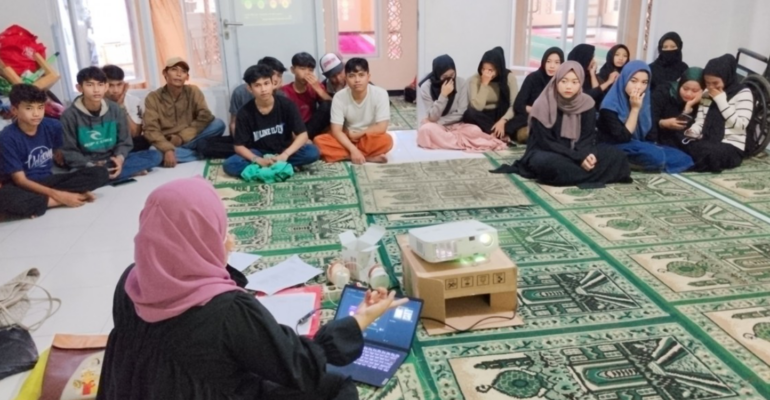Building Adolescent Resilience, IPB University Lecturer Creates Family Friendly Village Innovation

The lives of adolescents in the digital and globalization era are now increasingly facing complex challenges, especially due to easy access to various information on the internet and intensive use of social media.
Family Friendly Village is a social innovation initiated by Prof Euis Sunarti, a lecturer at the Department of Family and Consumer Sciences (IKK), Faculty of Human Ecology (Fema) IPB University. The innovation has become the center of attention in an effort to form a resilient and characterful young generation in the midst of increasingly complex digital information flows.
Prof Euis revealed, the Family Friendly Village Development Program is a form of collaboration with the Directorate of Agro Maritime Community Development (DPMA) IPB University and Indonesian Family Activists by building adolescent resilience.
“In the program, the facilitator facilitates teenagers to find a mechanism to increase adolescent resilience investment to achieve a better and quality life. The program was held four times to provide an understanding of 10 tasks, namely adolescent development, adolescent leadership, management skills and vocational skills, “explained Prof Euis.
She continued, teenagers are also invited to understand risk and risk management, starting with group discussions to identify vulnerabilities, explore and map the threats around them. The facilitators were deliberately chosen from young and adolescent people in order to communicate more closely and openly.
“Through a series of discussions, group dynamics and presentations, the Family Friendly Village Youth Resilience program in Ciherang Tengah has opened a space for teenagers to get to know better about their self-capacity, leadership and management skills. In addition, teenagers are stimulated to care and actively contribute in building their village to be friendly for all families who live in it,” said Prof Euis. (*/Lp) (IAAS/HLF)


